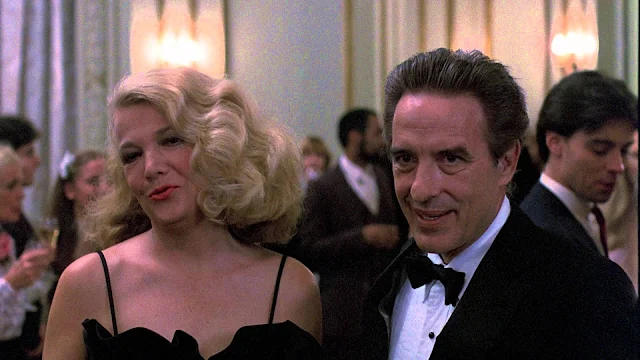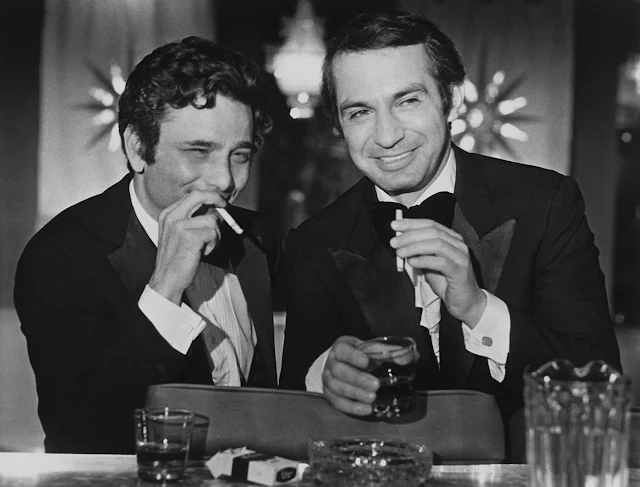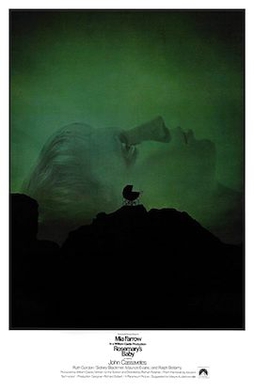A blog formerly known as Bookishness / By Charles Matthews
"Dazzled by so many and such marvelous inventions, the people of Macondo ... became indignant over the living images that the prosperous merchant Bruno Crespi projected in the theater with the lion-head ticket windows, for a character who had died and was buried in one film and for whose misfortune tears had been shed would reappear alive and transformed into an Arab in the next one. The audience, who had paid two cents apiece to share the difficulties of the actors, would not tolerate that outlandish fraud and they broke up the seats. The mayor, at the urging of Bruno Crespi, explained in a proclamation that the cinema was a machine of illusions that did not merit the emotional outbursts of the audience. With that discouraging explanation many ... decided not to return to the movies, considering that they already had too many troubles of their own to weep over the acted-out misfortunes of imaginary beings."--Gabriel García Márquez, One Hundred Years of Solitude
Search This Blog
Wednesday, January 22, 2025
The Killers (Don Siegel, 1964)
Cast: Lee Marvin, John Cassavetes, Angie Dickinson, Ronald Reagan, Clu Gulager, Claude Akins, Norman Fell. Screenplay: Gene L. Coon, based on a story by Ernest Hemingway. Cinematography: Richard L. Rawlings. Art direction: Frank Arrigo, George B. Chan. Film editing: Richard Belding. Music: John Williams.
Monday, July 8, 2024
Tempest (Paul Mazursky, 1982)
Sunday, August 28, 2022
Husbands (John Cassavetes, 1970)
Cast: Ben Gazzara, Peter Falk, John Cassavetes, Jenny Runacre, Jenny Lee Wright, Noelle Kao, John Cullers, Meta Shaw Stevens, Leola Harlow, Delores Delmar, Eleanor Zee, Claire Mallis, Peggy Lashbrook. Screenplay: John Cassavetes. Cinematography: Victor J. Kemper. Film editing: John Cassavetes.
There are those who think Husbands is a masterpiece and those who think it’s a self-indulgent mess. While I incline to the latter opinion, I’m willing to hear what those who admire it have to say. Cassavetes is a favorite of those who admire his uncompromising individuality as a filmmaker, and he never displayed it more thoroughly than in Husbands. He compiled months of raw footage shot in New York and London, which he then submitted to an editor, who made what previewers though was a superbly commercial comedy about suburban husbands on a spree. But that wasn’t what Cassavetes wanted, so he took the footage back and edited it into a wholly idiosyncratic film with flashes of comedy but extended scenes of pain. It opens with still photographs, snapshots of some family gathering attended by four buddies: Harry (Ben Gazzara), Archie (Peter Falk), Gus (Cassavetes), and Stuart (David Rowlands). But Stuart appears in the fim only in these photos because he’s dead: The actual movie starts with his funeral, after which Harry, Archie, and Gus express their grief by going on an extended bender, which eventually winds up with the three carousing with any women they can pick up in a London hotel. I can see what Cassavetes is up to with the film: a searching look at the 14-year-old boy in every middle-aged man. And I have to admit that it works. But is it a satisfactory movie? Why do scenes like the beer-sodden song contest in a bar, and the consequent vomiting scene in the bar’s men’s room go on so long? Does Cassavetes not trust the viewer to get the message? Admirers of the film argue that this is exactly the point: the message is in the experience of enduring these and other scenes. We squirm in our seats because Cassavetes wants us to. But is that art or torture?
Monday, August 24, 2020
Mikey and Nicky (Elaine May, 1976)
 |
| John Cassavetes and Peter Falk in Mikey and Nicky |
"I came as soon as I got your towel." That line, spoken by Mikey (Peter Falk) to Nicky (John Cassavetes) after the latter has thrown a bottle and a towel out of his hotel room window to get the former's attention, has an Elaine May ring to it. It's followed by a sardonic in-joke when Mikey chides Nicky for throwing the bottle because the broken glass could have put his eye out. (Falk lost an eye to cancer when he was 3.) The scene feels like a set-up for a comedy of rude manners, which Mikey and Nicky could well have become. But because May famously let the two great improvisatory actors have their head -- resulting in a shoot notorious for going way over budget and consuming reels upon reels of film -- the movie is a raucous, bittersweet tragicomedy about two old friends who have found themselves mobbed up beyond their control. Nicky, when we meet him, is a gibbering nervous wreck, so paranoid about being the target of a mob hit that he can't trust Mikey, even though he has called him to his aid. This time, the paranoia is justified: Mikey, it turns out, is in touch with the hit man, Kinney (Ned Beatty). But even the hit man is paranoid, fearful that he'll be the target next if he botches the hit on Nicky. And so goes this jittery one-of-a-kind movie, which is a kind of tribute to the movies Cassavetes directed himself. (Stories have it that he did direct some scenes.) I'm generally on the fence about Cassavetes's work, feeling that improvisation is a hit-or-miss way to make a serious movie: The misses seriously undermine the hits. Still, the energy generated by Falk and Cassavetes in Mikey and Nicky is potent and irresistible. The film is almost a two-hander, with the supporting cast, even Beatty, good as he is, serving as objects for the two leads to bounce off of. I can wish that May had exerted more control over her film -- she almost lost complete control of it to an uncomprehending studio -- but I also admit that I couldn't stop watching it.
Friday, March 20, 2020
Opening Night (John Cassavetes, 1977)
 |
| Gena Rowlands in Opening Night |
If at some moments you're uncertain whether what's happening in Opening Night is taking place on-stage or off-, that's the point. Gena Rowlands's Myrtle Gordon is no longer able, in part (but not entirely) because of her alcoholism, to distinguish art from life. This, to me, is John Cassavetes's most accessible film -- which is ironic, since it was a critical and commercial disaster on its initial release in the United States. Cassavetes was unable to find an American distributor for the film, and it didn't get one until two years after his death. Myrtle is struggling through the New Haven tryouts for a play called The Second Woman, which is about the difficulties the character she's playing has with getting older. After one performance, a hyped-up young fan all but assaults her with adoration, but then, as Myrtle's limousine pulls away from the theater, the fan is struck by a car and killed as Myrtle looks back in horror. The fan's death precipitates a breakdown: Myrtle acts up on stage, objecting to a scene in which her co-star and former lover Maurice (Cassavetes) slaps her, arguing with the playwright (Joan Blondell, in a role that was first offered to Bette Davis) that the play's preoccupation with aging is wrong-headed, fighting with her director, Manny (Ben Gazzara), and breaking character on stage during performances. She also begins to see the young woman who was killed, sometimes explaining the vision away as an actress's technique for getting into character, but eventually resorting to consultations with spiritualists. Rowlands is simply phenomenal throughout the film, a performance that must be seen. But Opening Night is overlong at 144 minutes, and it has some of its writer-director's too-loose improvisatory qualities, especially in the scene in which the play finally opens on Broadway and Myrtle and Maurice improvise the final act to the great amusement of the audience, turning the opening night into a hit. In fact, it doesn't seem nearly as hilarious as that audience finds it, and Myrtle's transition from falling-down drunk at the beginning of the opening night performance into quick-witted improviser is hardly convincing. But it's a mistake to try to put any Cassavetes story into a conventional context; he's doing his own thing, and you either appreciate it or you don't. Look for Cassavetes regulars Peter Falk and Seymour Cassel, along with his friend Peter Bogdanovich, in the crowd at the opening night.
Monday, March 2, 2020
The Killing of a Chinese Bookie (John Cassavetes, 1976)
 |
| Ben Gazzara in The Killing of a Chinese Bookie |
Wednesday, December 20, 2017
Faces (John Cassavetes, 1968)
 |
| Seymour Cassel and Lynn Carlin in Faces |
Maria Forst: Lynn Carlin
Jeannie Rapp: Gena Rowlands
Chet: Seymour Cassel
Freddie Draper: Fred Draper
Louise Draper: Joanne Moore Jordan
Florence: Dorothy Gulliver
Jim McCarthy: Val Avery
Billy Mae: Darlene Conley
Joe Jackson: Gene Darfler
Director: John Cassavetes
Screenplay: John Cassavetes
Cinematography: Al Ruban
Film editing: Maurice McEndree, Al Ruban
I often feel like there are some very good short films struggling to get out of John Cassavetes's features. One finally emerges in Faces after what seems like hours of the drunken horseplay of middle-aged businessmen who laugh heartily at their antics and bad jokes, egged on by the party girls they have picked up. That stuff is essential to the point Cassavetes is making about the stalled lives of his characters, but it goes on much too long. There are those who defend it insistently and articulately: Without the wearying effect of these opening sequences, they argue, the poignancy of the film's later scenes, such as its quiet conclusion with the estranged husband and wife sitting in a stairwell, would not be so effective. I get the point, just as I can see how tonic Faces was in its late-1960s context -- the '60s were one of the weakest decades for American film. But the movie only comes to life for me when Lynn Carlin's Maria, suffering silently from her husband's announcement that he wants a divorce, goes to the Whisky a Go Go in West Hollywood with some of her friends and comes back with the freewheeling young Chet. (Seymour Cassel, who was 30 when the movie was made, seems a little long in the tooth for the role, and because the film was released three years after it was made and after things had become shaggier and more psychedelic, Chet is a very clean-cut hippie.) Carlin's performance has a vulnerability to it that is quite touching, and when Chet wakes up to find Maria overdosed on sleeping pills, the scenes of his attempt to revive her are beautifully acted. And when Richard arrives to find Chet fleeing from Maria's bedroom, the intricate attempt of husband and wife to cope with their common adulteries and incompatibility is very well worked-out. I believe these scenes much more than I do the earlier ones of the raucous, blustery businessmen, which feel like actors working too hard to play dumber and more vulgar than they are.
Saturday, December 16, 2017
Shadows (John Cassavetes, 1959)
 |
| Ben Carruthers in Shadows |
Lelia: Lelia Goldoni
Hugh: Hugh Hurd
Tony: Anthony Ray
Dennis: Dennis Sallas
Tom: Tom Reese
David: David Pokitillow
Rupert: Rupert Crosse
Director: John Cassavetes
Screenplay: John Cassavetes
Cinematography: Erich Kollmar
Film editing: John Cassavetes, Maurice McEndree
You probably have to like John Cassavetes's later movies more than I do to appreciate Shadows beyond its historical significance. Even the most-praised films in his oeuvre leave me feeling itchy and annoyed, wondering why he has to inflict his hysterical people on me. That said, there's an innocence about Shadows -- chaotic and scattershot as it is -- that I can relate to. It has some good moments: Lelia Goldoni's fresh beauty and the crushing scene in which her character's losing her virginity turns out to be painful and disappointing; Ben and his loutish friends cavorting in the MOMA sculpture garden; the painfully pretentious party-goers yattering on about existentialism; and almost any scene in which Rupert Crosse, playing Hugh's manager, is present, looming with amusement over the action. But though it captures something about the New York scene on the cusp of the 1960s that's as valuable as anything that Jean-Luc Godard and François Truffaut did for the Paris scene, I keep wishing it were like their films: more polished and focused. Maybe that's because Cassavetes was almost too much of an auteur, too self-conscious about being a rebel. Andrew Sarris, that connoisseur of auteurs, found him "an unresolved talent" who "hovers between offbeat improvisation and blatant contrivance. Somehow his timing always seems to be off a beat or two even when he understands what he is doing." There are those who think that Shadows misses the mark because it isn't about what it seems to be about: race and sex. But if I value the film for anything it's for its decision not to preach or postulate about those or any other topics. And because it loosened up American movies, foreshadowing the best of the early Martin Scorsese, like Mean Streets (1973) and Taxi Driver (1976).
Tuesday, December 12, 2017
A Woman Under the Influence (John Cassavetes, 1974)
 |
| Eddie Shaw, Peter Falk, and Gena Rowlands in A Woman Under the Influence |
Nick Longhetti: Peter Falk
Martha Mortensen: Lady Rowlands
George Mortensen: Fred Draper
Margaret Longhetti: Katherine Cassavetes
Angelo Longhetti: Matthew Labyorteaux
Tony Longhetti: Matthew Cassel
Maria Longhetti: Christina Grisanti
Garson Cross: George Dunn
Harold Jensen: Mario Gallo
Dr. Zepp: Eddie Shaw
Director: John Cassavetes
Screenplay: John Cassavetes
Cinematography: Mitch Breit, Al Ruban
Film editing: David Armstrong, Sheila Viseltear
John Cassavetes's A Woman Under the Influence was one of the first films I reviewed during my brief career as a professional film critic. I didn't like it much, and I compared it unfavorably to another film that had recently been released, the theatrical version of Ingmar Bergman's Scenes From a Marriage (1973). I have changed somewhat over the years, and while I still greatly prefer the Bergman film, I have developed an appreciation for what Cassavetes was trying to do. Presenting raw, unfiltered life in a fiction film is no mean task, and it helps greatly that, in Gena Rowlands and Peter Falk, Cassavetes had actors who were more than capable of giving their all to the task. The problem for me is that the film comes off as an acting showcase rather than a convincing depiction of a real situation. Cassavetes takes his players and puts them in real surroundings: a construction site, a wintry beach, a rather louche bar, and most of all a cramped house. It's somewhat like the reverse of Marianne Moore's "imaginary gardens with real toads": In A Woman Under the Influence the gardens are real, if rather weedy and untended, but the toads -- Mabel and Nick Longhetti and their children and in-laws and friends -- are imaginary, i.e., actors acting up a storm. The title is a little misleading, too. Mabel is not "a woman," in the sense of a stand-in for all womankind, but a specific person of peculiar habits, and she is not "under the influence" in the sense that we use it in the phrase abbreviated as DUI. Her problem is not drugs or alcohol, although she certainly gets loaded on the latter and there are hints that she has been taking pills (probably prescribed by the odious Dr. Zepp). Her problem is the influence of other people, especially her husband, who give mixed signals about how she should behave: Sometimes she's told "just be yourself," but when Mabel is most Mabel -- giddy and affectionate and generous -- she can't help crossing the invisible boundaries others set for her. And of course her husband, Nick, is as crazy as she is, except in a different way, and he has outlets -- his job and his buddies -- that allow him to blow off much of his steam. Mabel's only outlet is her children, who adore her, and that proves threatening to people like her mother-in-law (in an extraordinary performance by the director's mother, Katherine Cassavetes), who have their own fixed and unalterable ideas about child-raising. Ironically, Mabel's encouraging the kids to dance and play dress-up are much healthier than Nick's bullying them at the beach and letting them drink beer while riding in the back of a truck. I still don't think A Woman Under the Influence is a great film, as critics like Roger Ebert and Kent Jones do. I'm not sure it's even a good one. But it's an important and even fascinating one and I'll let it go at that.



.jpeg)



.jpeg)



.jpg)

.jpg)




















